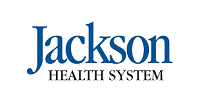.jpg) As politicians and law makers are wrestling over which health policies will best serve our country, our hospitals in South Florida are facing a rising crisis of inappropriate use of Emergency Rooms (ER). This crisis is directly related to the increased number of uninsured and underinsured individuals who seek primary care services in the ER or who have waited until their uncontrolled chronic diseases cause complications before seeking medical attention.
As politicians and law makers are wrestling over which health policies will best serve our country, our hospitals in South Florida are facing a rising crisis of inappropriate use of Emergency Rooms (ER). This crisis is directly related to the increased number of uninsured and underinsured individuals who seek primary care services in the ER or who have waited until their uncontrolled chronic diseases cause complications before seeking medical attention.
Although the true causes for the increase in the number of uninsured people around the country is politicized, in our South Florida community we can all agree that the rising number of the uninsured is due to the following:
1. People’s inability to afford the rising premiums of health insurance
2. The high deductibles associated with accessing primary and preventative healthcare services
The combination of the above has created this crisis of increased inappropriate use of ERs in our communities and hospitals that are in the frontlines are left to deal with this crisis. In addition to affordability there is also the inability to access care in a timely fashion which occurs very frequently with underinsured people in our community.
We are proposing Direct Primary Care (DPC) as part of the solution to this crisis and the need for hospitals and their emergency rooms to coordinate with local DPC practices in their communities. This would immediately create more access to quality healthcare for uninsured people while simultaneously providing people in the community 24/7 access to their providers.
To understand some of DPC’s simple innovations will give us the understanding of how it can be considered as part of the solution for the crisis the hospitals in our communities are facing. The simple DPC innovation of providing its members unlimited access to office visits with no co-pay has created a sense of reassurance and unapologetic ability for patients to have same day or next day appointments with their providers. Chronic diseases are better managed with more timely and effective medical interventions with every visit. This prevents a crisis and ultimately avoids a preventable visit to the emergency room.
Another DPC innovation is the ability to have 24/7 access with enhanced communication with providers via text messaging and video chatting that also creates an opportunity to reduce unnecessary visits to the Emergency Rooms. Patients that are enrolled in a DPC practice are not left alone to negotiate their urgent healthcare needs or concerns and now have the access to get their providers real time opinions even if it is at night or the weekend. With the recent acknowledgment that DPC is not insurance, we are now able to work more seamlessly with insurance companies to achieve High-Value care in our communities.
Health insurance premiums are rising in cost and families are having a more difficult time paying for these plans. Therefore, it has left many Americans without health insurance.
The deductible is what’s required as the patient’s financial responsibility prior to the health insurance covering a specified percentage or 100% of the healthcare services. The deductibles tend to go up when people select coverage that is less comprehensive. In other words, the smaller your premium, the higher your deductible.
Deductibles for the ACA’s programs are extremely high and are often unbearable for low- to middle-income families. Deductibles as high as $6,000 or more beg the question: why carry health insurance at all?
Co-Pay is the payment required for office visits of any kind or axillary services such as labs, radiology tests and sometimes medications. Patients must pay this amount prior to any services being rendered. Co-Pays are potential barriers to accessing health care. For instance, a person may not be able to afford a $50 co-pay to see their doctor once, let alone multiple times (for example, for repeat visits to get blood pressure under control).
The prices of medications are rising, and insurance companies are shifting the costs toward patients. More and more, patients are having to pay out of pocket for their prescription medications. This is creating a financial burden on individuals and families who rely on daily prescription drugs to manage conditions and illnesses such as hypertension, diabetes or ADD. People are put in the difficult position of deciding whether or not they can afford to buy their medications for that month.
Is there a workaround? A different solution? A better system?
Direct Primary Care (DPC) offers American families a membership-based system in which they receive affordable primary healthcare services. DPC clinics grant patients access to their doctors with no co-pay, use of affordable labs and radiology testing, and medications at lower costs.
DPC does not replace health insurance. It is a companion to it. DPC takes care of basic health care at affordable prices, leaving health insurance to cover more specialty services and catastrophic events/illnesses.
Coupet Quality Clinic (CQC) operates on the Direct Primary Care medicine model with an Extensivist who provides high level care coordination and is a liaison to many specialist physicians, in order to manage the high-risk patients in our community and to keep them from getting readmitted to the hospital.

























